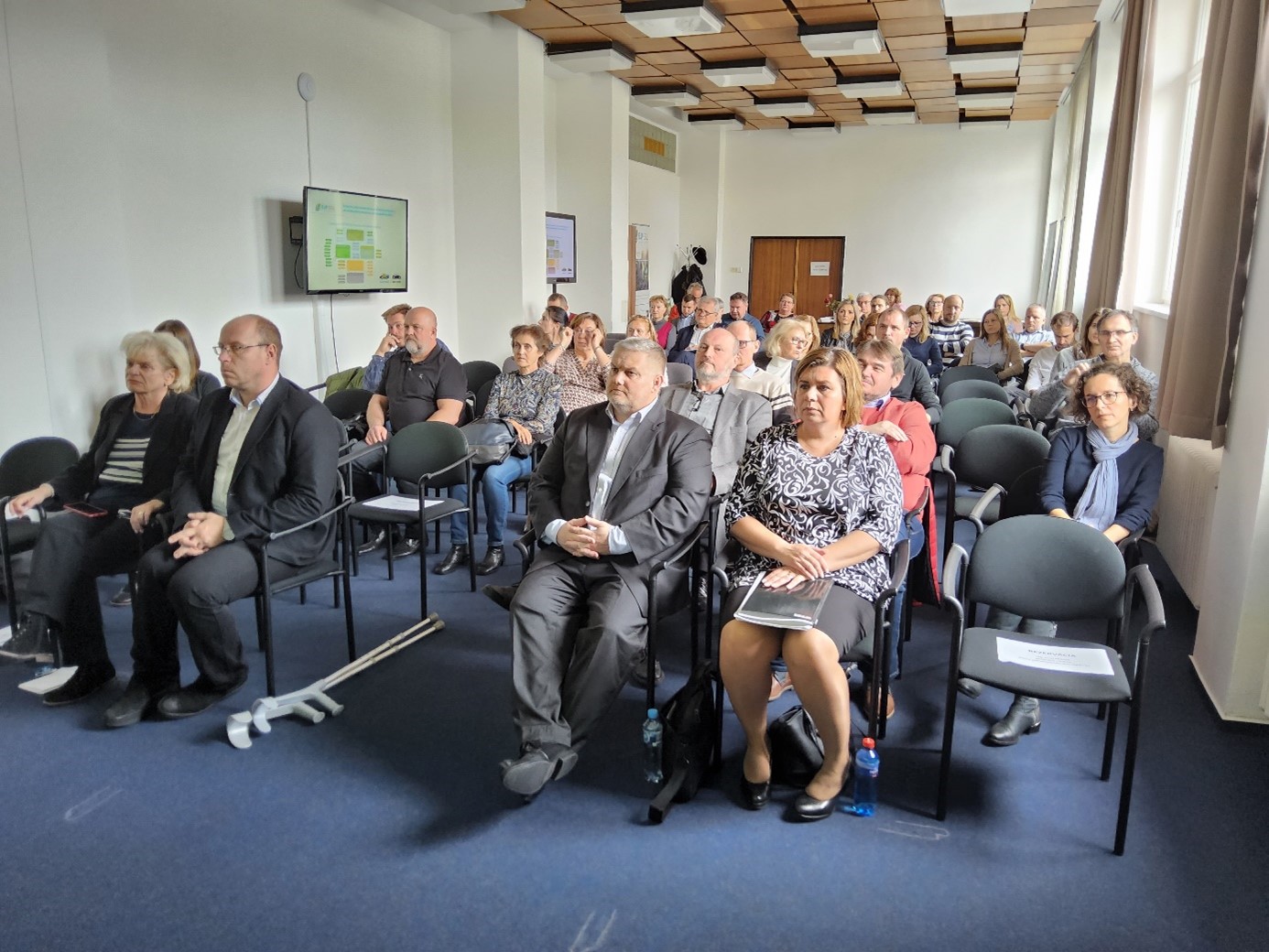Seminar on the Directive on Soil Monitoring and Resistance brought together stakeholders in Slovakia
A seminar held on November 15, 2023, at the Research Institute of Soil Science and Soil Protection in Bratislava, Slovakia, brought together stakeholders to discuss the development of the first European legislation for soil protection.



Pressure on soil and land is increasing worldwide: more than 50 years ago, the area of arable land per person was 0.36 ha, while in 2020 it has halved to 0.18 ha. The remaining area degrades, and this affects the long-term fertile potential of soils. It is estimated that between 61% and 73% of agricultural land in the European Union is affected by erosion, loss of organic carbon, excess nutrients (nitrogen), compaction or secondary salinization (or a combination of these threats).
The EU's 2030 Soil Strategy sets out a long-term vision for all soil to be in a healthy state by 2050, making conservation, long-term sustainable use, and restoration the norm, and proposes a mix of voluntary and legislative measures. This year, the European Commission issued the first European legislation for soil protection in the EU. The aim is to ensure soil protection at the European level, similar to the air, water, and marine environment. The legislation aims to establish a "definition of soil health" as well as a "soil health monitoring framework". According to the proposal, member states would be obliged to collect data on soil health and evaluate them according to a methodology that will be harmonized throughout the EU. The description of policy options is carried out through five key building panels that set out definitions and obligations for the creation of coherent legislation:
- Definition of soil health and determination of soil precincts,
- Soil health monitoring,
- Sustainable land management,
- Identification, registration, survey, and assessment of contaminated sites,
- Restoration (regeneration) of the soil condition and remediation of contaminated sites.
The Directive has 7 annexes, of which the most important is Annex 1. Soil descriptors and indicators of healthy soil condition and Annex 2 harmonization of methodologies. The monitoring system will take place at the level of the member states with the acceptance of the goals of the Green Deal and other strategic documents of the UN and the EU. Within the HORIZON EUROPE research program "Soil Agreement for Europe", 8 ambitious goals are set:
- Reduce land degradation, including desertification and salinization, restore 50% of degraded land;
- Preserve organic carbon reserves in the soil: increase the concentration of C on the cultivated soil by 0.1-0.4% per year; reduce the area of bogs losing C by 30-50%;
- Zero land acquisition by 2050 and increase the reuse of urban land;
- Reduce soil pollution and improve the restoration of at least 25% of the area in organic agriculture;
- Prevent and stop erosion on 30-50% of land with an unsustainable rate of erosion;
- Improve soil structure to improve the quality of habitats (soil biota and crops);
- Reduce the global land footprint by 20-40% through the import of food and wood into the EU;
- Significantly improve soil literacy in all member states.
This topic resonated at a seminar on November 15, 2023 at the Research Institute of Soil Science and Soil Protection in Bratislava (Slovakia) with the participation of approximately 60 interested parties from many workplaces (Ministry of Agriculture and Rural Development of the Slovak Republic, Agro-Institute, NGOs, media press, HORIZON national office, farmers, EJPSOIL project managers, members of the Slovak Academy of Agricultural Sciences, ÚKSUP and other organizations). Also present was the state secretary of the Ministry of Internal Affairs and Communications of the Slovak Republic, Ing. Mário Marušiak.
The main topic was presented by assoc. prof. Jaroslava Sobocká from NPPC-VÚPOP and Mgr. Richard Lazúr from Ministry of Agriculture and Rural development SR. The presented topic was widely discussed by the participants, as the issue directly concerns soil scientists and knowledge related to soil degradation monitoring.
The presentation also included presentations of projects solved within the international HORIZON 2020 EJP SOIL project, including roll-ups:
- CarboSeq (G. Barančíková)
- SERENA (J. Makovníková)
- iSoMPE (M. Sviček)
- BioCASH (L. Baľák-Lukáňová), and
- ARTEMIS (M. Kizeková, N. Britaňák).
The preliminary results of the research were presented, which will later be presented at the Annual Scientific Days of EJP SOIL in Vilnius (Lithuania) on June 10-14, 2024. A Book of abstracts is being prepared from the seminar, which, together with other documentation, will be published on several websites, including lines of the EJP SOIL library for Slovakia.
National links on this event are available here: